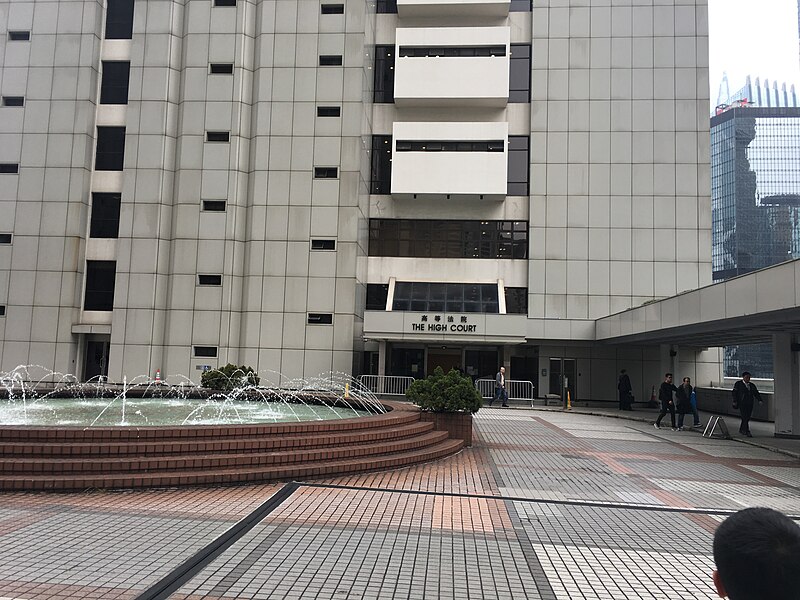
Hong Kong's High Court sentenced 45 pro-democracy activists to prison terms ranging from four to ten years on Tuesday. The ruling, delivered in a landmark national security trial, has drawn
sharp criticism from Western governments, including the United States, and cast a shadow over the city’s reputation for political freedoms.
The activists were among 47 individuals arrested in 2021 under a Beijing-imposed national security law. They were charged with conspiracy to commit subversion, a crime that can carry life imprisonment. Benny Tai, a former legal scholar described in the judgment as the "mastermind" of the activists’ plans, received the longest sentence of ten years.
The charges stemmed from the activists' organization of an unofficial "primary election" in 2020, aimed at selecting candidates for the city’s legislative elections. Prosecutors argued the effort was part of a plan to paralyze the government by promoting potentially disruptive legislative tactics.
Western nations have condemned the trial, with the U.S. calling it "politically motivated." American officials urged the release of the activists, stating that they were merely exercising their legal right to participate in political activities.
Conversely, the Chinese and Hong Kong governments defended the national security law, asserting that it was necessary to restore order following the mass pro-democracy protests of 2019. Officials emphasized that the sentences were consistent with local laws.
The trial, lasting 118 days, concluded in May with the conviction of 14 activists, including Australian citizen Gordon Ng and prominent figures like Owen Chow and Gwyneth Ho. Two defendants were acquitted, while 31 others pleaded guilty. All 45 received significant sentences.
Activist Gwyneth Ho, sentenced to seven years in prison, denounced the ruling in a social media post. “Our real crime for Beijing is daring to ask: will democracy ever be possible in such a system? The answer was a crackdown across all of society,” she wrote.
Australia’s Foreign Minister Penny Wong expressed “grave concern” over the sentences, urging China to end its suppression of freedoms in Hong Kong. Other international leaders echoed these sentiments, calling the trial a further erosion of the city’s autonomy and democratic principles.
The trial attracted significant public attention, with hundreds queuing outside the West Kowloon Magistrates' Court for a chance to observe proceedings. Despite light rain, many held umbrellas in silent protest. Authorities maintained a heavy police presence, deploying officers, police dogs, and an armored truck to the area.
Inside the courtroom, judges Andrew Chan, Alex Lee, and Johnny Chan justified the sentences by citing the activists’ extensive planning and the potential harms of their alleged scheme. The court dismissed arguments that the activists’ efforts were unlikely to succeed, ruling that the intent to paralyze the government warranted harsh penalties.
Some activists, including Joshua Wong and Hendrick Lui, received shorter sentences but remain emblematic of the city’s crackdown. Lui’s mother, Elsa Wu, tearfully proclaimed her son’s innocence outside the court: “He’s a good person … why does he have to go to jail?”
Critics argue the trial has undermined Hong Kong’s role as a global financial hub and tarnished its judicial independence. The sentencing coincided with the city’s efforts to attract international investors at a major financial summit, highlighting the tension between economic ambitions and growing political restrictions.
U.S. officials, including Roxie Houge, head of the U.S. consulate’s political section in Hong Kong, condemned the trial as an attack on free speech. Meanwhile, Taiwan’s presidential office reiterated its support for Hong Kong, emphasizing that democracy and freedom are universal values.
For many Hong Kong residents, the sentencing marks a grim milestone in the city’s political transformation under Beijing’s increasing influence. One supporter outside the court, who identified herself as Margaret, expressed her commitment to the activists. “They need to know they still have public support,” she said.
As Hong Kong navigates its future, the trial serves as a stark reminder of the growing divide between Beijing’s governance and the city’s once-vibrant democracy movement. Photo by CCP2017, Wikimedia commons.






































